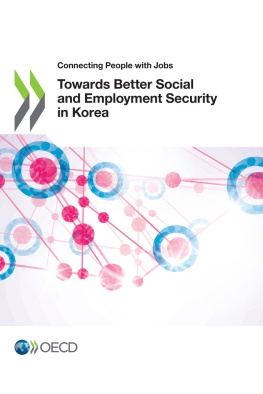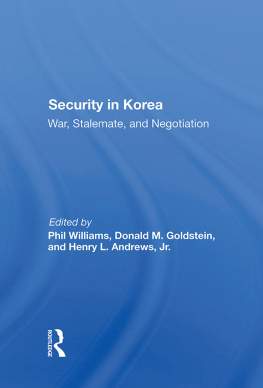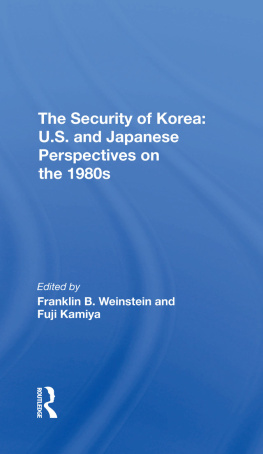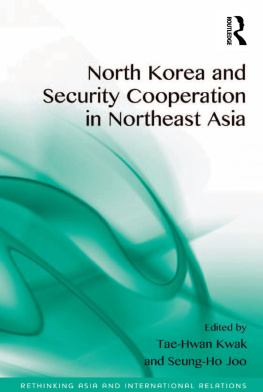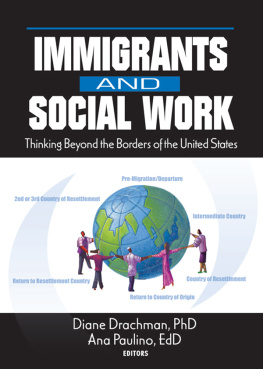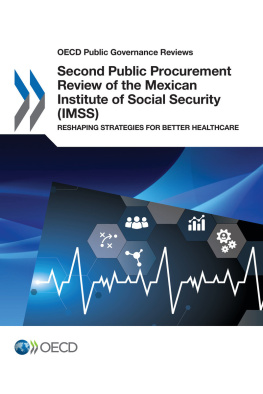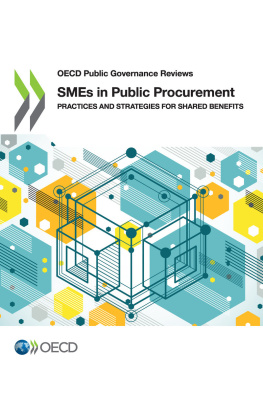coll. - Towards Better Social and Employment Security in Korea
Here you can read online coll. - Towards Better Social and Employment Security in Korea full text of the book (entire story) in english for free. Download pdf and epub, get meaning, cover and reviews about this ebook. City: Array, Paris, year: 2018, publisher: OECD Publishing, genre: Politics. Description of the work, (preface) as well as reviews are available. Best literature library LitArk.com created for fans of good reading and offers a wide selection of genres:
Romance novel
Science fiction
Adventure
Detective
Science
History
Home and family
Prose
Art
Politics
Computer
Non-fiction
Religion
Business
Children
Humor
Choose a favorite category and find really read worthwhile books. Enjoy immersion in the world of imagination, feel the emotions of the characters or learn something new for yourself, make an fascinating discovery.
Towards Better Social and Employment Security in Korea: summary, description and annotation
We offer to read an annotation, description, summary or preface (depends on what the author of the book "Towards Better Social and Employment Security in Korea" wrote himself). If you haven't found the necessary information about the book — write in the comments, we will try to find it.
coll.: author's other books
Who wrote Towards Better Social and Employment Security in Korea? Find out the surname, the name of the author of the book and a list of all author's works by series.
Towards Better Social and Employment Security in Korea — read online for free the complete book (whole text) full work
Below is the text of the book, divided by pages. System saving the place of the last page read, allows you to conveniently read the book "Towards Better Social and Employment Security in Korea" online for free, without having to search again every time where you left off. Put a bookmark, and you can go to the page where you finished reading at any time.
Font size:
Interval:
Bookmark:
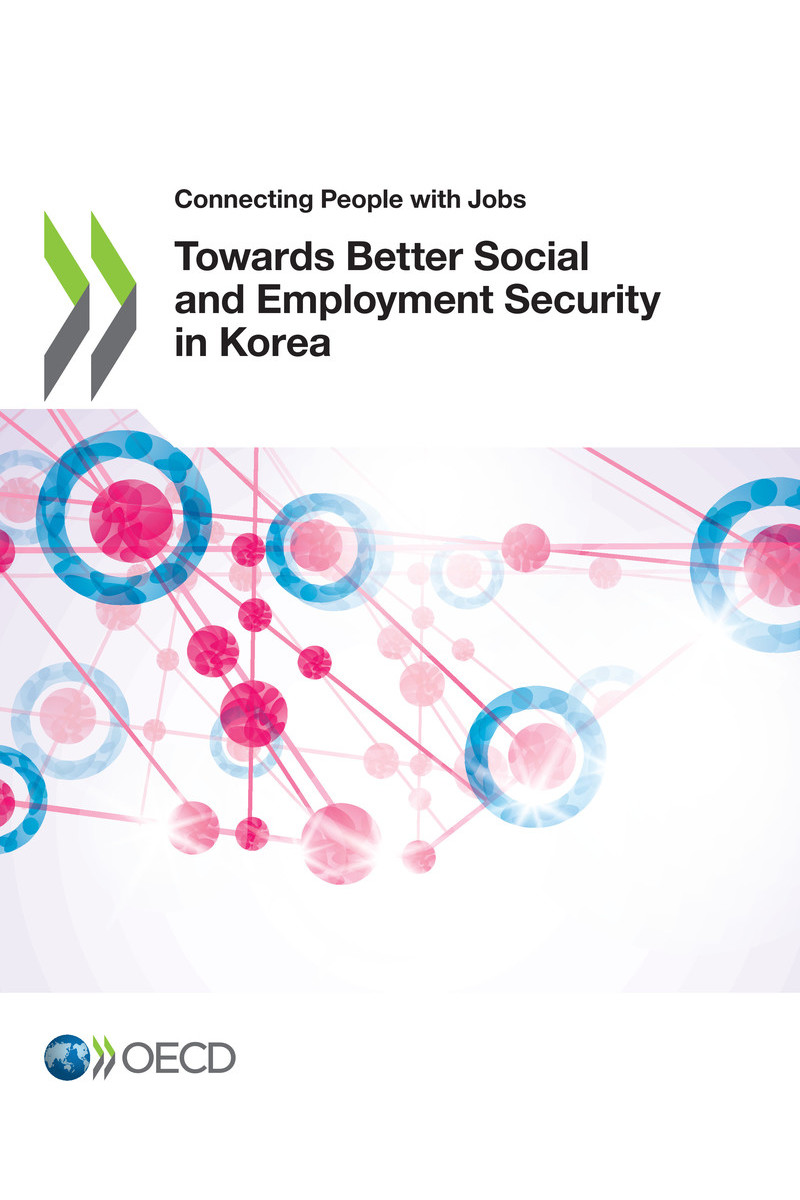
OECD (2018), Towards Better Social and Employment Security in Korea , Connecting People with Jobs, OECD Publishing, Paris.
http://dx.doi.org/10.1787/9789264288256-en
Giving people better opportunities to participate in the labour market improves well-being and strengthens economic growth. Better labour market and social protection policies help countries to cope with rapid population ageing by mobilising potential labour resources more fully. Many OECD countries achieved record employment levels prior to the global financial crisis, but in all countries employment rates differ markedly across population groups. High unemployment, weak labour market attachment of some groups in society, and frequently unstable, poor-quality employment reflects a range of barriers to working or moving up the jobs ladder. In many countries the crisis has accentuated long-standing structural problems that are causing these disadvantages. It is a major challenge for policy makers in the coming years to address these problems and make OECD labour markets and, thus, OECD economies more inclusive.
Therefore, the OECD Employment, Labour and Social Affairs Committee is carrying out a set of reviews of labour market and social protection policies to encourage greater labour market participation and better employment among all groups in society with a special focus on the most disadvantaged, who face the greatest barriers and disincentives to finding good work. This includes a series of country studies, Connecting People with Jobs , which provide an assessment of how well activation policies help all groups to move into productive and rewarding jobs and a number of policy recommendations that could improve the situation.
This report on Korea is the fourth country study published in this series. It has a special focus on low-income jobseekers and low-income workers and policies geared towards closing the considerable gaps these groups are facing around income and employment support. The report was prepared by Hyeongso Ha, Christopher Prinz (project leader) and Marko Stermek, economists in OECDs Skills and Employability Division. Statistical assistance was provided by Sylvie Cimper and Agns Puymoyen and editorial assistance by Lucy Hulett and Katerina Kodlova. Comments were provided by Mark Keese, Veerle Miranda, Mark Pearson and Stefano Scarpetta. The report benefited greatly from discussions with experts and government officials during an OECD mission to Korea in late 2016, and comments on a draft version provided by several Korean ministries and stakeholders.
The government of Korea is determined to find ways to close considerable gaps in the countrys social protection system and ensure adequate employment and income support for low-income jobseekers and the working poor. Current gaps are the combined result of a system that excludes some people outright and allows others to go undocumented and, therefore, without social protection coverage. This situation contributes to considerable inequality and poverty, reinforces widespread labour market duality and leads to poorer job outcomes alongside lower, less-inclusive economic growth.
Korea has gone through remarkable economic development over the past 40 years, rapidly catching up with the level of well-being in the average OECD country, and witnessing a fast social transformation. The labour market, however, has not kept pace with the development and continues to show a number of peculiarities that distinguish it from most other OECD countries. Most noteworthy are Koreas very high shares of self-employment and non-regular employment, especially among older workers, and employment in small businesses with short lifetimes that, in turn, result in very low job tenure for the average worker.
Font size:
Interval:
Bookmark:
Similar books «Towards Better Social and Employment Security in Korea»
Look at similar books to Towards Better Social and Employment Security in Korea. We have selected literature similar in name and meaning in the hope of providing readers with more options to find new, interesting, not yet read works.
Discussion, reviews of the book Towards Better Social and Employment Security in Korea and just readers' own opinions. Leave your comments, write what you think about the work, its meaning or the main characters. Specify what exactly you liked and what you didn't like, and why you think so.

